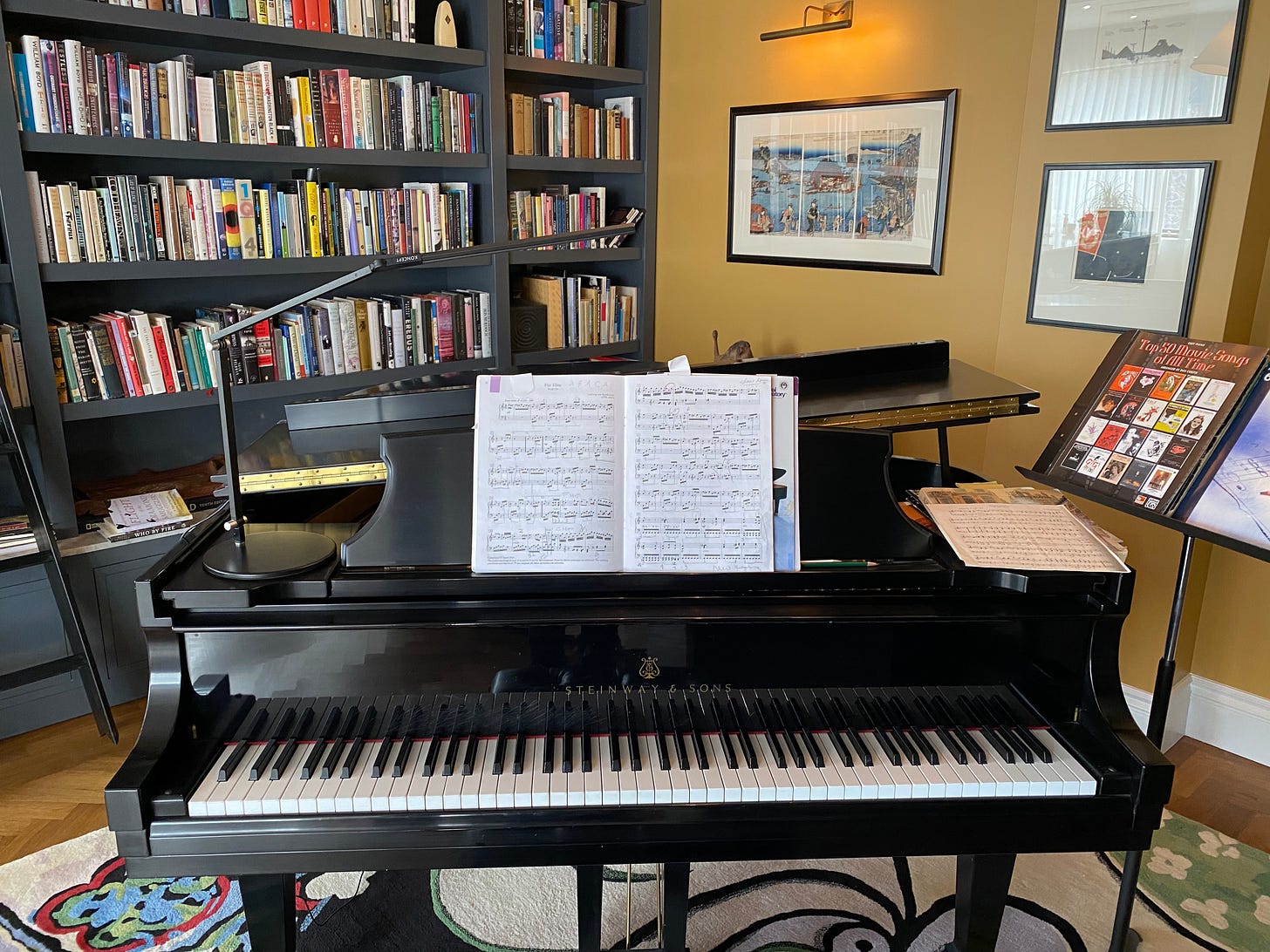This newsletter looks at issues and events from the endgame point of view. The endgame is a chess concept. In the endgame only a handful of pieces are left on the board. Few moves remain. Victory or defeat is close. Player options are limited and diminishing. Zugzwang is a particularly important aspect of the endgame. It is zugzwang when a player’s only available moves will worsen his position.
Toronto, March 19, 2023
Bob Marley, Luis, and me
The endgame should have musical accompaniment. Musical accompaniment will make it more enjoyable. Bob Marley said, “One good thing about music, when it hits you, you feel no pain.”
You don’t have to rely on Spotify or Idagio or some other music streaming service to see you through. You can make your own music. About fifteen years ago, inexplicably, my wife said to me, “You should take piano lessons. I’ll pay for a couple. For your birthday.” My wife is an excellent pianist, although she doesn’t practise much. She sits down occasionally and dashes off a sonata or two. She does it with ease and grace.
I took her offer. I found a music teacher. I’ll call him Luis. Luis is from Cuba. He is an accomplished jazz pianist and composer. He can play anything—jazz, classical, whatever. He is kind and patient and knowledgeable, particularly about music theory which resembles quantum physics. Luis and I have become good friends.
For fifteen years I’ve toiled away at the piano with the help of Luis. The results are unimpressive, despite his best efforts. I’ll play something I’ve been working on for a while and ask Luis, “How was that?”
“Not terrible,” he’ll say gently.
Or, “It would help if you played the right notes.”
Luis has taught me things that go beyond simply banging out a tune or two. One of them is the importance of fingering. Luis is a stickler for the right fingering. “You’ll get yourself in a mess if you don’t use the right fingers,” he tells me often.
Take something simple—the G Major scale, left hand, descending. If you don’t get the fingering right, you’ll run out of fingers on the final A and won’t have one for the last G. You’ll be stymied and feel foolish. Or, if you make a different kind of mistake, you’ll have two fingers left over and they’ll have nowhere to go and nothing to do.
Or think about the chromatic scale (twelve consecutive notes, white and black). Ascending or descending, you must only use three fingers—thumb, index finger, and middle finger. Always play black keys with your middle finger; that will leave thumb and forefinger available to play adjacent white keys. Take a look at this brief video that explains it better than I can:
If you don’t get the fingering right, you’ll mess up.
At the moment, my party piece is Beethoven’s “Für Elise,” very famous and very beautiful. Children play it to show that piano lessons are worth the money. Lang Lang plays it:
So do I, sort of. It has a descending chromatic scale towards the end. The chromatic scale is preceded by a series of arpeggios (broken chords) which present their own fingering challenges. You’ve got to be careful or the whole thing will fall apart.
Look at bars 77 to 81.
Music is about beauty, not technique. Behind the beauty is talent, sometimes genius. But technique is also behind the beauty. You need order, discipline, and effort. Music lessons teach the importance of those things. That’s why kids should take music lessons. And old people too.
Love beauty. But don’t forget to work on technique.
P.S. My new book is Antisemitism: An ancient hatred in the age of identity politics. You can order it from the publisher, Sutherland House, or from Ben McNally Books, or get it at the usual places.







My music teacher (ukulele -- solo/chord-melody) had to keep reminding me that "Every note is not a fucking quarter note."